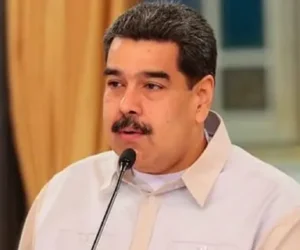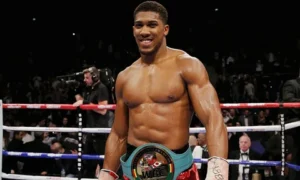Look, when I first heard that Burna Boy had publicly discussed his religion and spiritual journey, I knew this would spark serious conversations. And boy, was I right. Within hours, social media exploded with reactions, debates, and hot takes. But here’s the thing – most people are missing the deeper story here.
Let me walk you through what’s really happening with Burna Boy’s faith journey, because it’s way more nuanced and honestly more relatable than the headlines suggest. This isn’t just about switching from one religion to another. It’s about a man searching for truth in a world that gives him more questions than answers.
The Breaking News: What Burna Boy Actually Said
So here’s what happened. During a recent Twitch livestream with American streamer PlaqueBoyMax, Burna Boy dropped a revelation that sent shockwaves through Nigerian social media and beyond. He revealed that he grew up as a Christian before converting to Islam as part of his ongoing spiritual journey.
But wait – before you run off with just that headline, you need to hear what else he said because this is where it gets really interesting. Burna Boy explained that despite exploring both faiths deeply, he’s still searching: “I grew up as a Christian, and then I converted to Islam. I have studied it all, and I am still finding out what is really going on. The more I research, the more confused I get”.
That last part? That’s the part everyone’s ignoring but it’s actually the most important. This isn’t a story about someone who found all the answers. It’s about someone still asking questions.
Understanding Burna Boy’s Christian Upbringing
Let’s rewind to where this all started. Burna Boy was raised in a Christian home, following the beliefs of his parents. This is crucial context because in Nigeria, particularly among Yoruba families like his, Christianity isn’t just a religion – it’s often deeply woven into family identity, social connections, and daily life.
Growing up Christian in Nigeria means church every Sunday, maybe midweek services, Christian fellowship groups, possibly attending a faith-based school. It’s not casual. It’s comprehensive. So when Burna Boy talks about being raised Christian, he’s talking about a fundamental part of his upbringing and identity.
He explained that he was born into Christianity because that’s what his parents practiced, but as he got older, he began to question certain things about life and faith, which pushed him to seek deeper meaning.
Here’s what’s interesting – questioning your inherited faith is actually incredibly common, especially for people who achieve the level of global exposure Burna Boy has. When you travel the world, interact with different cultures, see different ways of living and believing, it naturally makes you reconsider what you were taught growing up.
The Conversion to Islam: What Led to This Decision
Now let’s talk about his conversion to Islam, because this is where people get it twisted. Burna Boy emphasized that his decision wasn’t based on rebellion or pressure from anyone, but rather on a personal conviction that brought him calmness and direction.
This is important. In Nigeria, religion can be political. It can be about connections, about fitting in, about business relationships. But Burna Boy is saying his conversion was personal and spiritual. He was searching for something – peace, understanding, truth – and he felt he found elements of it in Islam.
Think about what that means for someone at his level. Burna Boy doesn’t need to convert to Islam for clout or connections. If anything, publicly discussing his conversion to Islam could cost him some of his Christian fanbase. The fact that he’s being open about it suggests genuine spiritual seeking rather than strategic positioning.
According to Burna Boy, despite exploring both faiths deeply, he remains on a personal journey of self-discovery and spiritual awakening, stating “I’ve studied it all but I’m still in search of the truth”.
The Deeper Truth: His Views on Organized Religion
But here’s where Burna Boy religion discussion gets really fascinating and honestly, controversial. He didn’t just talk about his conversion – he shared some pretty raw thoughts about religion in general.
Burna Boy described religion as a tool of control, stating “Religion is bullshit. It’s all a control mechanism”. Now, before the comments section explodes, understand what he’s saying here. He’s not saying spirituality is meaningless. He’s making a distinction between organized religion and personal spirituality.
While he called religion a control mechanism, he also emphasized “I believe in a higher power. Clearly, we are creations, and there must be a creator”. So he’s not rejecting the concept of God or a higher power. He’s questioning the institutional structures, the rules, the hierarchies – the human-made systems around faith.
This is actually a position many young people worldwide are taking. They believe in something bigger than themselves, they pray, they seek spiritual connection, but they’re skeptical of religious institutions and dogma. Burna Boy is just saying it more bluntly than most people dare to.
The Confusion Factor: Still Searching Despite Converting
Here’s the part that’s genuinely vulnerable and honest: Burna Boy explained that the more he researches religious books with the aim of finding meanings, the more confused he becomes.
Think about what he’s admitting here. This is a Grammy-winning global superstar, someone who projects confidence and certainty in everything he does, publicly saying “I’m confused.” That takes guts.
He stated “I am trying to be above belief; I’m trying to know, because you don’t need to believe if you know”. This is philosophically interesting. He’s saying belief isn’t enough for him. He wants certainty, knowledge, proof. He wants to understand, not just accept.
The problem is, faith by definition requires belief without complete knowledge. That tension – between wanting to know for sure and having to believe without proof – is what’s driving his ongoing confusion.
How Prayer Still Plays a Central Role
Despite all his questions and confusion, here’s something crucial that shows Burna Boy’s spiritual journey is genuine: he still prays regularly.
According to him, prayer remains one of the most important aspects of his life: “When I close my eyes while praying, I feel like my prayer is being heard. I don’t know by whom. As I’m praying and receiving answers, I feel like I am so blessed”.
This is fascinating. He doesn’t know exactly who or what he’s praying to, but he feels the connection. He feels heard. He feels blessed. This is spirituality stripped down to its most basic element – communication with something beyond yourself, regardless of labels or doctrines.
This tells me his spiritual journey is sincere. Someone who’s just going through the motions or using religion strategically wouldn’t maintain a private prayer practice. Prayer is deeply personal. The fact that he’s experiencing this while simultaneously questioning everything else shows the complexity of his spiritual state.
The Public Reaction: Why Everyone Has an Opinion
Now let’s talk about how people have reacted to Burna Boy religion revelations, because the responses tell us a lot about Nigerian society and religion.
Reactions from Nigerian social media have been mixed, with some expressing concern about his spiritual journey while others defending his right to seek truth. You’ve got Christians saying he’s lost, Muslims welcoming him to Islam, and others questioning whether he’s truly committed to any faith.
Some Christian fans have been particularly vocal, viewing his conversion as a loss or even a betrayal. In Nigerian Christianity, there’s often an attitude that once you’re born again, you stay born again. The idea of someone choosing to leave Christianity for another religion can be seen as backsliding or being deceived.
On the Muslim side, reactions have been more welcoming but cautious. Some are celebrating his conversion, while others are waiting to see if he’ll fully embrace Islamic practices and lifestyle. After all, there’s a difference between saying you converted and actually practicing the faith consistently.
What’s interesting is the third group – people who relate to his confusion and spiritual searching. These are mostly younger Nigerians who themselves are questioning inherited religious beliefs and appreciate Burna Boy’s honesty about the struggle.
Comparing His Journey to Other Nigerian Celebrities
Burna Boy isn’t the first Nigerian celebrity to publicly discuss changing or questioning their faith. Fellow Nigerian singer 9ice disclosed months earlier that he embraced Ifa traditional religion after suffering what he described as a “spiritual attack” that left him bedridden for six months, stating he wished he had embraced his ancestral faith earlier.
This suggests there’s possibly a trend of Nigerian celebrities becoming more open about exploring spirituality beyond Christianity or Islam. In a country where about 50% identify as Muslim and 48% as Christian, publicly embracing traditional African religions or questioning organized religion entirely is still somewhat taboo.
The difference between 9ice and Burna Boy’s approaches is interesting. 9ice went from Islam to Ifa after a specific traumatic health experience. Burna Boy went from Christianity to Islam through intellectual and spiritual searching, but remains uncertain and questioning.
Both journeys challenge the narrative that you’re born into a religion and that’s it forever. They’re showing that spiritual identity can evolve, change, and remain uncertain even into adulthood.
What This Means for His Music and Public Image
Here’s a practical question: how does Burna Boy religion journey affect his career and music?
Honestly, probably less than you’d think. Burna Boy’s fanbase is global and diverse. His music has always touched on themes of African identity, spirituality, struggle, and consciousness without being explicitly Christian or Muslim. He’s not a gospel artist whose entire brand depends on religious affiliation.
If anything, his honesty about spiritual searching might deepen his connection with fans who relate to that struggle. His music has always been about authenticity and not conforming to expectations. This spiritual journey fits that narrative perfectly.
There might be some pushback from conservative religious fans on both sides, but Burna Boy has never been about playing it safe or appealing to everyone. His brand is built on being unapologetically himself, even when that’s controversial.
His involvement in African cinema through Spaceship Films, his continued musical evolution, and his influence in global Afrobeats aren’t likely to be significantly affected by his religious views. The international music industry largely doesn’t care about an artist’s specific religious affiliation as long as the music connects.
The Bigger Picture: Spirituality vs. Religion in Modern Nigeria
Let’s zoom out and look at what Burna Boy’s journey represents in the bigger picture of Nigerian society.
Nigeria is one of the most religious countries in the world. Church and mosque attendance is high, religious language permeates public life, and faith identity is often central to how people define themselves. Yet simultaneously, there’s a growing cohort of young, educated, globally-exposed Nigerians who are questioning inherited religious beliefs.
This tension between deep religiosity and emerging religious skepticism is playing out in real-time, and celebrities like Burna Boy are bringing these private struggles into public conversation.
His distinction between spirituality and organized religion resonates with many millennials and Gen Z Nigerians who believe in God or a higher power but are skeptical of religious institutions, leaders, and dogma. They’re seeking direct spiritual experience rather than mediated religion.
The fact that someone as prominent as Burna Boy is voicing these struggles publicly might give others permission to explore their own questions without feeling like they’re betraying their families or communities.
Understanding the Islam He’s Embraced
So what does Burna Boy’s Islam actually look like? This is where we need to be careful because he hasn’t detailed specific practices or beliefs beyond the conversion itself.
Islam in Nigeria is diverse. There’s conservative Islam, Sufi mysticism, cultural Islam, and everything in between. Without more specific information about which interpretation or community Burna Boy has connected with, we can’t assume what his Islamic practice looks like.
What we do know is that he’s still researching, still questioning, still confused. That doesn’t necessarily fit the typical narrative of conversion where you’re supposed to find certainty and peace. It suggests his relationship with Islam might be more about spiritual seeking than religious certainty.
The fact that he’s comfortable saying “I converted to Islam” while also saying “I’m still confused and searching” suggests he might view Islam not as the final answer but as part of his ongoing spiritual journey. That’s a more fluid, personal approach to religion than traditional adherents of either Christianity or Islam might be comfortable with.
The Role of Global Exposure in His Journey
Let’s talk about something that doesn’t get enough attention: how traveling the world affects your religious worldview.
Burna Boy isn’t experiencing faith from one cultural perspective. He’s toured the world, performed in dozens of countries, interacted with people from countless backgrounds. He’s seen how different cultures practice Islam, how different communities experience Christianity, how people in some places are deeply religious while others are largely secular.
That kind of exposure inevitably makes you question what you were taught is the “one true way.” When you see good, moral, happy people practicing different faiths or no faith at all, it challenges religious exclusivity claims.
His confusion might actually be the result of seeing too much, knowing too much, experiencing too many different perspectives to accept simple answers anymore. That’s not spiritual weakness – it’s the natural result of genuine engagement with diverse worldviews.
What This Teaches Us About Faith Journeys
Here’s what I think Burna Boy religion journey teaches us, regardless of your own faith or lack thereof:
First, spiritual journeys aren’t linear. You don’t just move from point A to point B and stay there forever. Faith can be messy, uncertain, evolving. That’s okay.
Second, questioning isn’t the opposite of faith. Burna Boy is questioning while still praying, still seeking, still believing in something bigger. That’s actually a deeper engagement with spirituality than just accepting what you’re told without thought.
Third, you can respect religion while criticizing religious institutions. Believing in God and believing organized religion has problems aren’t mutually exclusive positions.
Fourth, conversion doesn’t equal certainty. Changing religions doesn’t mean you’ve found all the answers. Sometimes it means you’ve found new questions that seem more worth asking.
Fifth, public figures discussing their spiritual struggles normalizes the reality that many people experience faith as complicated rather than simple. That’s valuable.
The Unanswered Questions
As we wrap up, there are still lots of unanswered questions about Burna Boy’s spiritual journey.
Will he fully practice Islam, including daily prayers, Ramadan fasting, and other pillars of the faith? Or is his Islam more philosophical than practical?
How will his family, who raised him Christian, respond to his conversion and his public statements about religion being a control mechanism?
Will he continue to speak openly about his spiritual searching, or will he make this revelation and then keep future developments private?
Most importantly, will he find the certainty he’s looking for, or will he continue in this state of searching confusion?
Only time will tell. What we know now is that Burna Boy is on a spiritual journey that millions of people globally can relate to – seeking truth, questioning inherited beliefs, trying to make sense of faith in a complex world.
The Bottom Line
Burna Boy religion isn’t a simple story of switching from Christianity to Islam. It’s a complex narrative about a man who grew up Christian, converted to Islam while searching for truth, but remains confused despite studying both faiths deeply.
He believes in a higher power, prays regularly, and feels spiritually connected, but he’s skeptical of organized religion while still identifying with one. He’s seeking knowledge beyond belief, looking for certainty in matters that may ultimately require faith.
Whether you’re Christian, Muslim, practice traditional religion, or are spiritual but not religious, there’s something recognizable in his journey. Most people who really engage with questions of faith and meaning go through periods of confusion and searching.
The difference is Burna Boy is doing it in the public eye, giving voice to questions many people have but fear expressing. That takes courage, especially in a religiously conservative society like Nigeria where faith claims are often expected to be certain and unchanging.
His journey is still unfolding. He’s still searching, still questioning, still praying. And honestly, that openness to continued growth and questioning might be more spiritually mature than claiming to have it all figured out.








